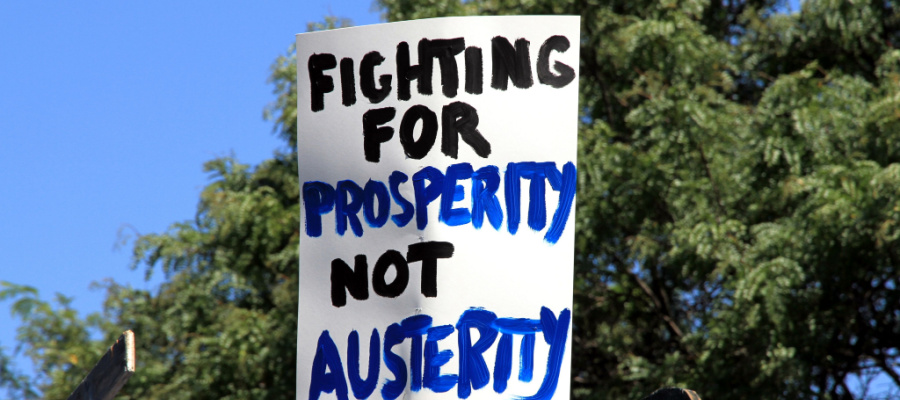Our recommendations for the 2024 BC budget

The BC government is holding its annual public consultation on Budget 2024 this June, inviting British Columbians to share their priorities for government investment next year.
On June 14, I presented the CCPA–BC’s recommendations to the Select Standing Committee on Finance and Government Services. Via the BC Legislative Assembly website, you can hear my presentation as well as my question and answer session with the members of the committee from the government and opposition (starts at the 3:59 pm mark) or read the transcript.
Below is the text of our written submission to the committee. The committee required all participants to narrow their submissions down to three recommendations, with limited space for explaining each one. Given the wide range of challenges our province faces, we focused our recommendations on the big picture.
Recommendation 1
Implement new tax fairness measures to raise additional provincial revenues and reduce inequality.
Explanation
Budget 2024 should introduce inequality-reducing taxes on the rich to help fund increased public investment in critical services and infrastructure, which is a necessity to meet the challenges our province faces. Provincial operating revenues and spending have declined substantially in recent decades as a share of BC’s GDP, even as urgent new social and environmental needs have emerged.
The last BC budget included substantial (and welcome) funding increases in a number of areas, but even accounting for these investments, budgeted operating spending is about $5 billion lower than it would have been if it were returned to the same share of GDP as two decades ago.
The last budget was wise to prioritize public investment over a return to austerity, funded in part by moderate deficits. The budget also included large contingency funds, which represents additional fiscal room. But the CCPA–BC recommends additional tax revenue measures to ensure that badly needed public investments can be sustained and expanded over the medium and long term.
Revenue can be efficiently and equitably raised with taxes that focus on the rich, large corporations and wealthy landowners. For example, BC could add additional brackets and higher rates to provincial property taxes on high-end real estate holdings worth over $3 million, as well as expand the tax base to include the total holdings of large landowners. Other sensible policy options include increasing tax rates on the highest personal incomes and on the profits of large corporations.
Credit rating agencies recognize that raising additional tax revenue is well within BC’s capacity, with Moody’s noting that BC’s taxes are “at the lower end of the Canadian provinces, presenting the province the flexibility to raise taxes… while still remaining competitive.” Tax fairness measures are also critical to tackle extreme inequality, which has damaging economic and social consequences.
Recommendation 2
Increase provincial operating spending to address urgent social, environmental and economic needs.
Explanation
British Columbia is facing big social and environmental challenges: sky-high housing costs, health care under strain, a toxic drugs crisis, climate disruption and the need to build and rebuild crucial but eroded public services in other areas like education and child care. BC has ample economic and fiscal capacity to increase social spending in these areas, building on the progress in Budget 2023.
Robustly funding public services is not only the right thing to do but also makes economic sense. A large body of research and evidence shows that spending on strong public services comes with major economic benefits, including higher productivity, spurring private investment and adding jobs.
This can be seen in specific policy areas. For example, universal public child care has large and well-documented economic benefits including allowing more women to participate in the labour force. More action is needed to recruit and retain early childhood educators with better pay while rapidly opening new public and non-profit child care spaces, which remain in short supply.
Health care is another area where funding is needed to recruit and retain staff with good wages and working conditions. With health care under strain, it’s crucial to focus on strengthening public health care and recognize that for-profit health care is a huge source of inefficiency. Research shows that implementing a universal, public pharmacare system would generate billions of dollars in savings in Canada while increasing equity and access to medicines. In primary care, surgical wait times, and seniors’ care the evidence shows that for-profit health care yields worse outcomes at higher costs.
There is also a strong economic case (besides the obvious moral case) for making the investments needed to reduce and eliminate poverty once we account for its substantial costs. British Columbians who rely on income assistance and disability benefits continue to be kept in deep poverty. Rates should be increased at least to the poverty line.
Recommendation 3
Sustain and expand the scale of capital investments in physical and social infrastructure.
Explanation
The overall scale of capital investment in the last BC budget was impressive, reaching a record $37.5 billion over the three-year plan and belatedly achieving the capital investment targets set out in the government’s 2020 election platform. This scale of investment needs to be sustained and expanded to address the backlog of badly needed and highly-productive infrastructure projects, including in areas like affordable housing, child care, education, health care, public transit and climate action.
The economic case for increasing and sustaining public capital investment is strong. Research by IMF economists examining 17 OECD countries (including Canada) finds that public investment “raises output in both the short and long term, crowds in private investment and reduces unemployment, with limited effect on the public debt ratio.” A meta-analysis of 68 studies on the productivity of public investment similarly finds that “public capital is undersupplied in OECD economies.”
The housing crisis is one key area where public investment can have a large economic payoff by addressing housing shortages and high prices faced across the province. A massive and ongoing increase in public housing investment should be a top priority. One way to expand the role of public investment in housing at the large scale needed is to finance it using self-supported debt (as opposed to taxpayer-supported debt), which could be incorporated into the BC Builds program. The creation of new public housing can and should go hand-in-hand with accelerating the expansion of badly needed public and non-profit child care spaces, as well as building new schools in underserved areas.
Expanded investment in public transit is also needed and would bring both economic and social benefits (a huge share of the transportation capital budget remains dedicated to expanding car infrastructure). Public transit investment is widely recognized to boost incomes and economic productivity, ease costly traffic congestion, as well as reducing carbon and air pollution.
Topics: Children & youth, Economy, Health care, Poverty, inequality & welfare, Provincial budget & finance, Seniors, Taxes



